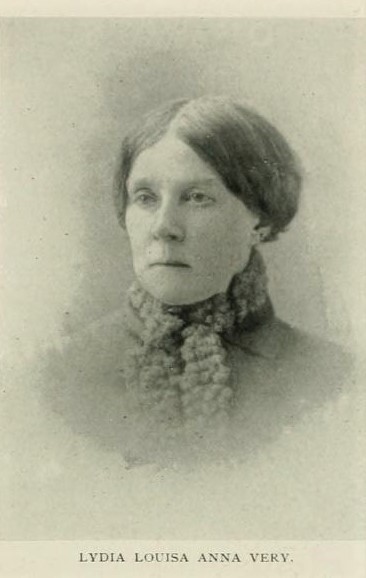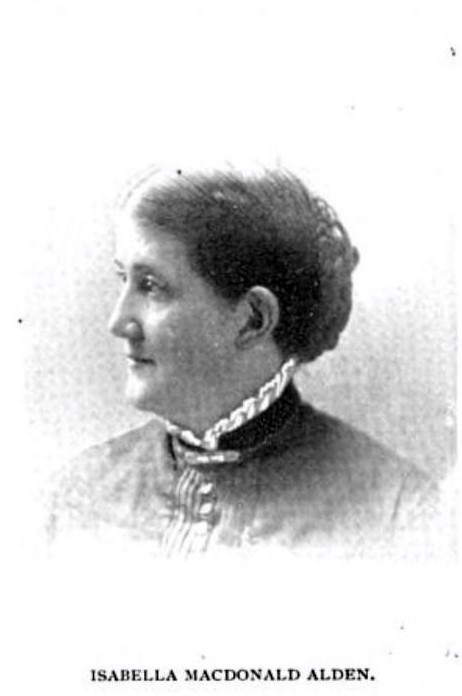October 29 - November 4
Women of the Week
Author, educator, and artist Lydia Louisa Anna Very and author Isabella Macdonald Alden are this week's Women of the Week
-
To learn about them by viewing their items, please click on their images.
-
To read their biographical sketches in A Woman of the Century, please click on the highlighted page numbers to the left of their images.
Lydia Louisa Anna Very was born on November 2, 1823, in Salem, Massachusetts, the youngest child of Jones and Lydia Very. Her father passed away when Lydia was just a year old.
In December of 1841, Lydia began teaching at Mason Street Public School in Salem, and by 1860, she was serving as principal. She continued in this capacity until the end of the 1871-1872 academic year, The next school year, she became principal of Dunlap Street School.
While busy with her career in education, Lydia also found time to create paintings and clay models, to write poetry and prose, and to design and illustrate books. Her design for the book “Red Riding Hood,” in the shape of the main character, was innovative and very popular.
An advocate of corporal punishment for children, Lydia wrote to Charles Brown Lore, Chief Justice of the Delaware Supreme Court, in the Spring of 1901 to support his views on this issue. She passed away later that year, on September 10, 1901 and was buried in Old South Cemetery in Peabody, Massachusetts.
Isabella Macdonald Alden, born in Rochester, New York, on November 3, 1841, was involved in the fields of education, temperance, religion, missionary work, and authorship.
After attending the Oneida Seminary, Isabella taught there. She married Rev. G. R. Alden, a Presbyterian minister, in 1866 and became a mother. Isabella was very involved with her faith, teaching Sunday School and writing for the Presbyterian Primary Quarterly and the Herald and Presbyter.
Alden, known as "Pansy," wrote numerous novels and juvenile literature books, including Tip Lewis and His Lamp (1868) and Making Fate (1895). She also edited the Pansy periodical and contributed to Westminister Teacher. In addition, she was involved with the Chautauqua movement.
Isabella passed away in Palo Alto, California, on August 5, 1930, and was buried in Palo Alto's Alta Mesa Memorial Park.


